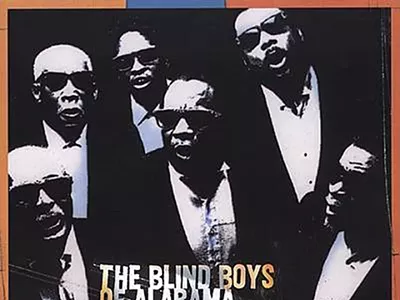There's a new music festival in town, one for what people used to confusingly call "new music." The three-day event Over the Pavement: A Festival of Art Music is curated and hosted by Joel Peterson and Rebecca Mazzei at their two-year-old, multi-use space Trinosophes. With acts as diverse as keepers of Sun Ra's infinite flame of interstellar free jazz, Marshall Allen and Danny Ray Thompson from the Sun Ra Arkestra; the ground-breaking improvising violinist LaDonna Smith from Birmingham, Ala.; and Travis LaPlante's face-melting saxophone quartet Battle Trance, even the most casual fans of out sound should leave their house for this.
Metro Times: I'm curious why you called this festival Over the Pavement?
Joel Peterson: It's named for the Charles Ives piece "Over the Pavements." I also liked it because of the old brick paver road, Service Street, which is in back of Trinosophes.
MT: According to my office mate Michael Jackman, who once helped out in running your events at the Bohemian National Home, having your own space was a dream and a goal for a long time. You've now had the space up and running for two full years; what's it been like? What's worked, and what hasn't?
Peterson: I don't really look at it as a dream per se, just something necessary that's within my ability to make happen. Eleven to 12 years ago, there was a real dead period for venues. And I had an opportunity to start presenting things under my own terms, so I went for it. Being both a musician and a presenter, it just made sense to consolidate activities into a common place. I had been doing things at Detroit Contemporary and Detroit Art Space, which were the two places that had interesting programming at the time. But as I presented more and more things, it was clear I needed to have my own spot to not contend with other people's calendars and stuff like that.
My caveat is that as a kid, my aunt lived with (Honest) John Thompson in the house next door to the Trumbull Theatre, now part of Trumbullplex. I thought it was so crazy that this house had a theater built on to it — it was mostly community theater in those days — and I used to have a reoccurring dream about that venue. So I guess what I do now does, literally, relate to a dream of mine.
Beyond my music programming and Rebecca's gallery curation, I think we're most successful at being an inclusive community and information center. We are proud of the cafe too, but that's always a bit more of a battle and has had more hiccups along the way. It's great there's a core of people who have really stuck with us through it all. We're excited too, because we're planning a great, long-term kitchen scenario with someone whose food we really love and we've worked with in the past.
MT: Is the lack of alcohol at the space still a plan going forward?
Peterson: For the foreseeable future.
MT: How do you think you run your space differently because you're a musician yourself?
Peterson: I try to pass little to no overhead to the performers, unless it's more of a rental situation than our programming. We're not trying to stay open on the backs of people who do things here. I would guess our vibe is different, because we don't want to be a "business" that badly. We want to keep the element of being a project space in the forefront.
MT: And in what way do you think being a musician helped to shape the way you've assembled this festival?
Peterson: Well, certainly I discovered many of these acts through my connections as a musician, rather than as a curator and programming person. Susan Alcorn, for example, was introduced to me by experimental musicians in the South almost 20 years ago. I believe it was the Shaking Ray Levis in Chattanooga who told me about her first. And I discovered LaDonna Smith via local composer, inventor, and musician Frank Pahl, when he had her play his Ear Whacks! festival in the dawn of the '90s. I think that was the last time she performed in Detroit. Basically by working with people as a musician, you get to find out about all the people they collaborate with. And that would take much longer to discover as a listener.
MT: Anything else up with the space?
Peterson: The Michigan Audio Heritage Society [run by Brad Hales of Peoples Records] has softly opened in our third storefront, and we're looking forward to their ever-growing presence in the building. We also have multiple new commissioning projects that will be happening this year, with both local and international artists. These will be to fund new work that is either difficult to stage and/or of unusually ambitious scale.
MT: Do you have any take on the relationship between Sun Ra and the Arkestra with Detroit? I know there's a lot there, going back so many years.
Peterson: I think it can really be said that as much as the Arkestra ever had a mass audience, it can really be attributed to Detroit. Of course this is a very relative statement. But they certainly crossed over with the baby boomer generation more here than anywhere else. The multiple residencies, the association with John Sinclair and the MC5 — that stuff raised their profile with the rock generation not only regionally but nationally. When I presented the full Arkestra at Bohemian National Home, Danny Ray Thompson told me about their first show in Detroit. It was them, Howling Wolf, and James Brown! Could you imagine a bill like that?
Playlist:
Festival highlights
MT: Let's go over a few of the highlights of your festival. Please tell me as much as you like about each of these artists here — why do you love their work? How did you first encounter them? What might they be doing here at the fest?
Battle Trance
(avant garde sax quartet from Brooklyn)
"Seeing these guys last year [in September at Trinosophes] was a big part of why I'm doing the festival now. It was a weeknight, so a lot of the improvised music superfans didn't make it out to the show. They were so good that I immediately thought that we should have them back soon for a bigger event."
Victor Ghannam
(local Arabic music virtuoso on oud and qanun)
"I met Victor sometime around 2001, when his ensemble and my old group Immigrant Suns combined into a single band at Detroit's 300th anniversary celebration in Hart Plaza. I probably met him just about a year before that, when my friend Djeto took me to see him play at the old Prestige Club on the far west side. He's an outstanding soloist on two very difficult instruments. I really wanted to include him, as I wanted a large portion of the festival to be devoted to the art of improvisation, but from many perspectives."
Susan Alcorn
(experimental/ambient pedal-steel guitar from Baltimore)
We have many mutual friends, but somehow our paths had never crossed. Improvised music is one of the few musical genres where women are really on an equal footing with men as serious artists; the whole musical style is generally quite egalitarian in approach. I felt it was important to really highlight some of the women at the forefront of creative music at the festival.
LaDonna Smith
(Birmingham, Ala.-based improviser on violin and viola)
"Everything I just said about Susan is exactly true of LaDonna too. I should mention that, although I didn't know or plan on this, Susan and LaDonna have a recent duo record together, so they're going to close Friday out with a duo set, following their individual sets."
Marshall Allen and Danny Ray Thompson with Jaribu Shahid
(senior members of the Sun Ra Arkestra, from Saturn)
"There are three bands in popular consciousness that are tops for me in terms of cult-like living situations that really turned into pushing the musical envelope — primarily by spending every waking hour rehearsing in the house (or train) that they lived in: the Ellington Orchestra, the Magic Band, and the Arkestra. Of those, the Arkestra is the most consistently satisfying. Sonny never missed the mark that much. My introduction was buying a copy of Sun Song at Car City. I only had a vague idea of what I was getting into."
Hasan Abdur Razzaq/Ryan Jewell Duo
(free-jazz duo from Columbus, Ohio)
"Pure, emotive fire-music from Ohio! Hasan and Ryan both played at the Bohemian a number of times and I've also collaborated on projects with both of them. Hasan and I play in the group BoxDeserter together on the CD Two Revolutions. Neither of them had been to Trinosophes yet, and it felt like time to quit neglecting Columbus."
James Cornish and guests
(Hamtramck's busiest improviser and recruiter of emerging talent)
"Class act, that guy — and important to the scene's general health. We've been running in circles together for at least a decade now."
Molly Jones and Kristin Carey
(next generation of local improvisers)
"I discovered Molly and her frequent collaborator Patrick Behnke when they phoned up Trinosophes and said they needed an emergency place to practice. They came in and really impressed. Giving new improvisers a shot is really important, both for developing musicians and developing audiences."







